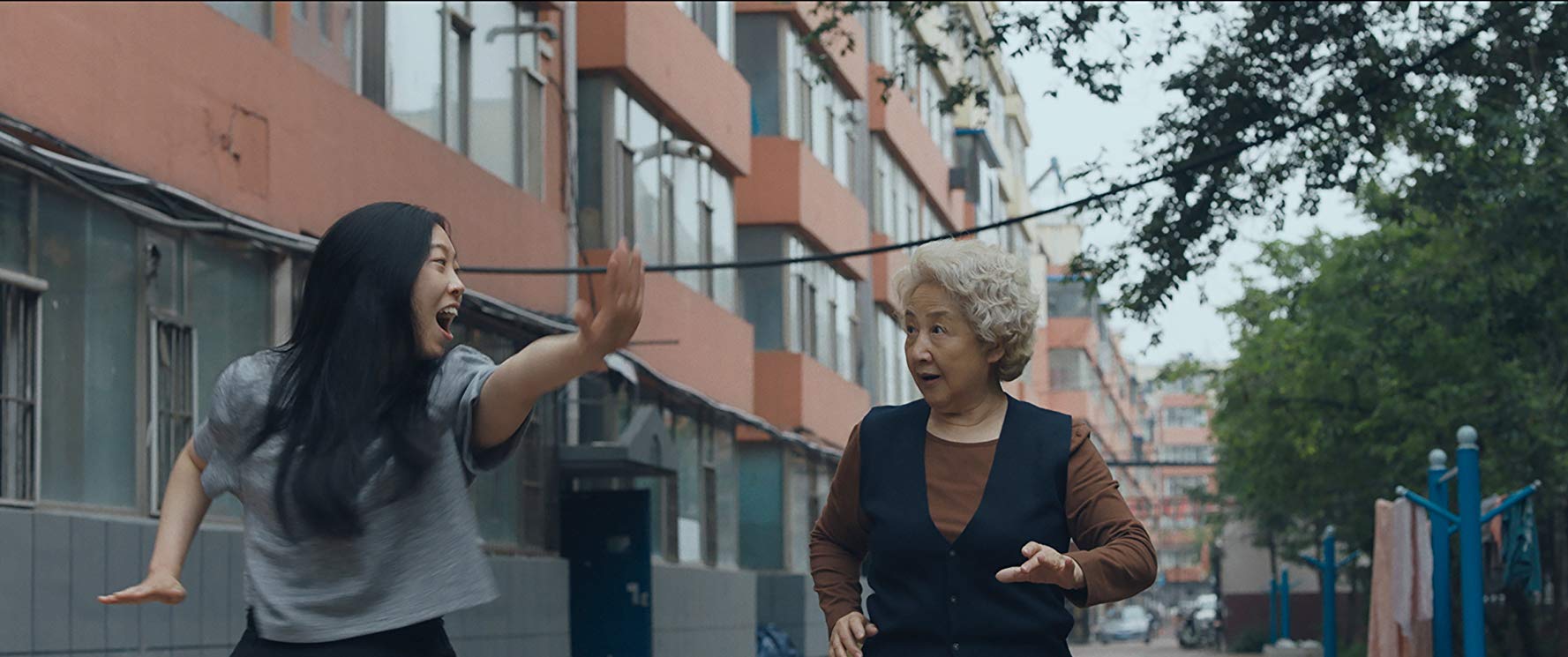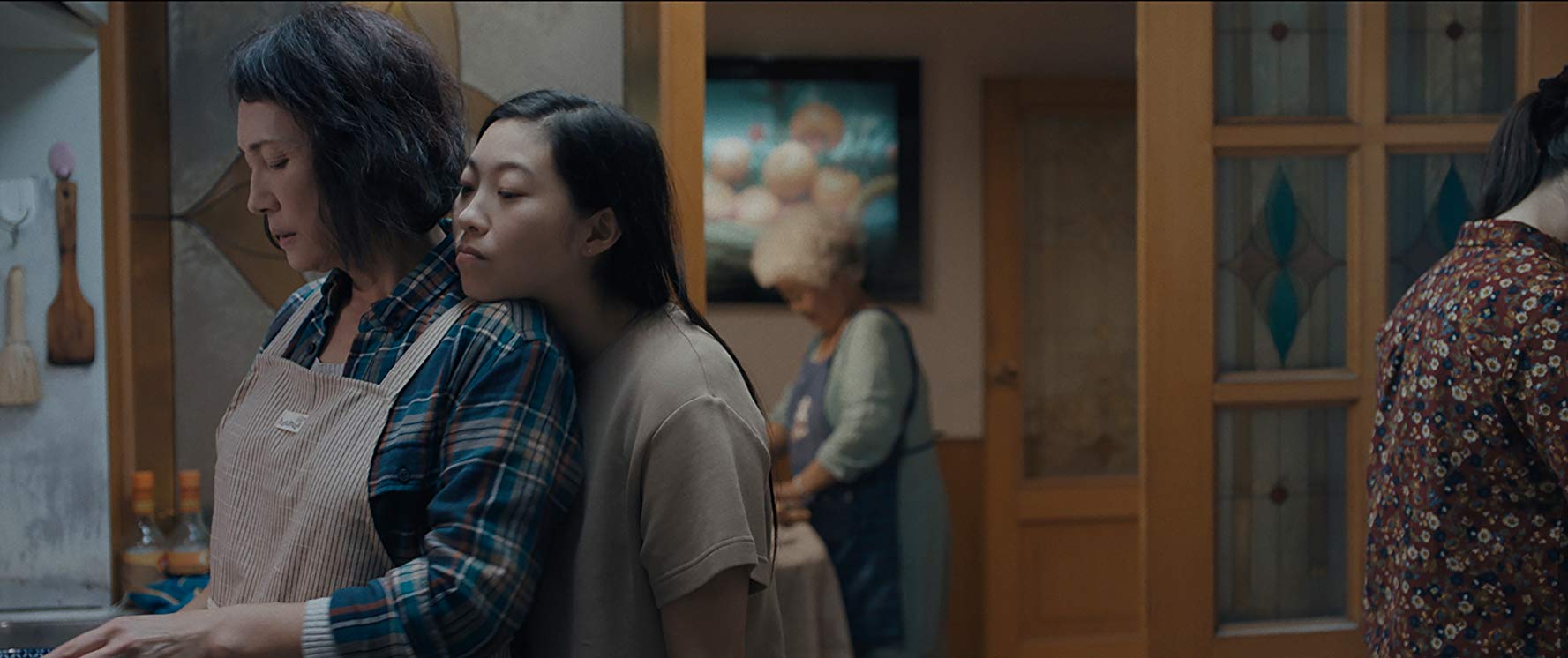By Siavash Minoukadeh, Entertainment Subeditor
Writer-director Lulu Wang’s second film, The Farewell (2019), is an intensely personal one, being based on ‘an actual lie’ in her family.
The film’s premise is that New Yorker Billi’s (Akwafina) grandmother, Nai Nai (Shuzhen Zhao) is dying of cancer. Not wanting her to despair in her final months, the family conspire to keep this from her and instead throw a contrived wedding to gather everyone back to see her one last time.
Though it may sound strange to a western cinema-goer, this practice is somewhat commonplace in China - but for Billi, who moved to the US at the age of six, it proves to be something of a challenge to hide Nai Nai’s condition from her.

At times, this plot lends itself to musings on the nature of life and death and these prove to be the least exciting moments of the film: the writing is simplistic and Akwafina’s performance, whilst fine over most of the film, falls flat in these scenes.
Thankfully, these existential discussions take a back seat throughout most of The Farewell and Wang instead devotes the majority of the 100-minute run-time to something much simpler: the sheer joyousness of a grandmother-grandchild relationship.
Zhao, simply put, is wonderful as Nai Nai. She delicately performs the balance between being Billi’s wise elder - giving her some sage advice in the film’s final scenes - and cheekily teasing her: asking a handsome young doctor if he’s married on Billi’s behalf.
Watching her load Billi’s plate with food or determinedly insist on walking up the stairs to her flat unassisted, it’s easy to be charmed by her charisma and reminded of our own grandmothers. This is what makes the film work so well: by the end of the film, it is difficult to separate Nai Nai from what we feel towards our own grandparents.
Painting such a lifelike portrait of Nai Nai as a bubbly and resilient matriarch does unfortunately lead to a puzzling point in the plot: if she is so strong and resolute in the way she lives her life, why is the family so afraid of the cancer diagnosis crushing her?
It’s easy to be charmed by her charisma and reminded of our own grandmothers
Though it seems glaring, it’s easy to ignore this hole in the plot because The Farewell isn’t really about the impact of Nai Nai’s diagnosis, but about her relationship with her grandchild and the love that Zhao so effortlessly performs for her.

Nai Nai’s role in Billi’s life is also a metaphor for Billi’s connection to China. Just as her grandmother appears to be slipping away from her, so does her understanding of the country she was born in: her Mandarin is no longer fluent and the family treat her as somewhat of an outsider who is unaware of their traditions.
Nowhere is this more clear than in the incredibly poignant scene at the end with Nai Nai waving at Billi as her taxi to the airport drives off. What she is leaving behind is not just her beloved grandmother, but also her childhood and its culture. Shot in silence, there’s nothing to distract from the weight of the scene and I found myself welling up.
The Farewell isn’t trying to be a technical tour de force
The film would benefit from having more of these silent scenes. Instead, too many moments are washed away by a classical soundtrack that drowns out the action. It might seem like a minor complaint, but it happens often enough to give the impression that music is being used as an easy way to get the audience emotional, instead of allowing the scenes to earn our response.
The more I think about The Farewell, the more I love the delicate flitting tonal shifts and warm humour. Lulu Wang is a hell of a talent. https://t.co/HcnwSUNPsj
— Wendy Ide (@wendyide) September 22, 2019
The comedy feels too easy at times as well. The plot’s dramatic irony is used as a punchline a few too many times: by the third or fourth time, there’s few new laughs to be had. Where the film does explore other forms of comedy - such as in the utterly absurd wedding sequence - it fares a lot better.
Ultimately, it doesn’t really matter if the comedy is forced at times, or if the music is overpowering, or even if there is a flaw in the plot because The Farewell isn’t trying to be a technical tour de force. All it needs to succeed is to make the audience invested in Nai Nai’s life and Zhao’s performance alone is enough to make that the case.
Featured image: IMDb / Entertainment One
Did The Farewell have you feeling wistful?








